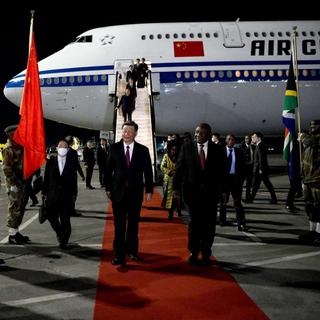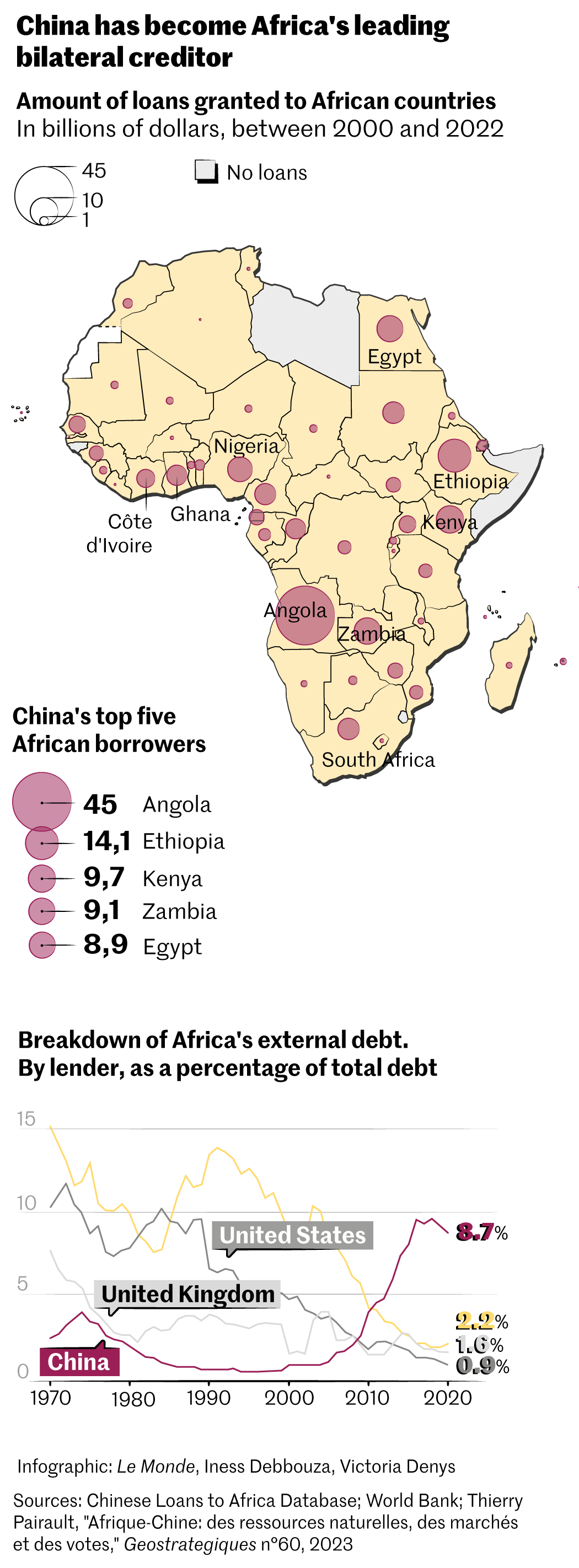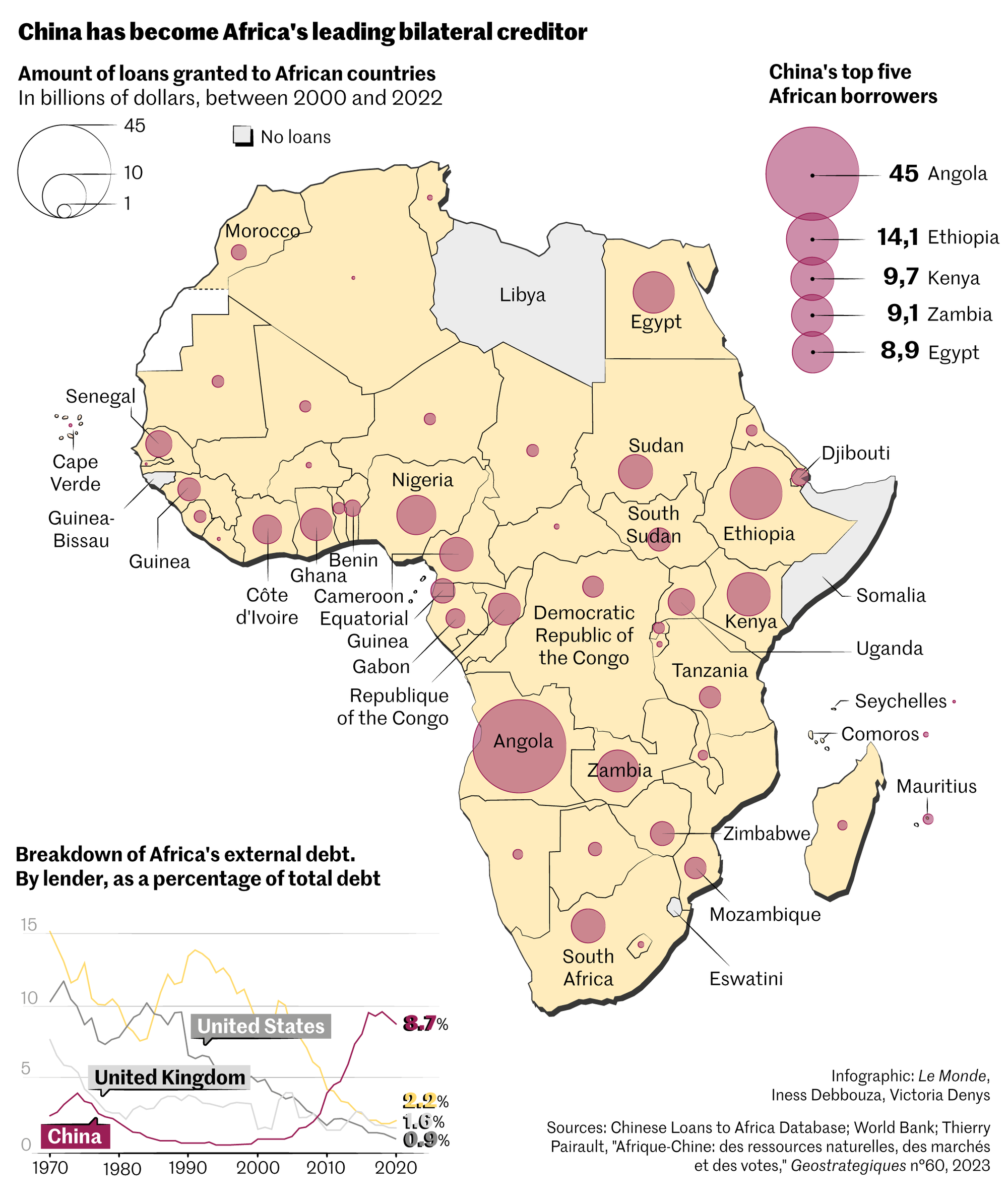


The new face of 'Chinafrica' is marked by a dramatic drop in lending to the continent
In DepthRelations between the Asian giant and the African continent are at a turning point, as illustrated by the dramatic drop in Chinese loans being made to sub-Saharan countries. Beijing is pulling back, but Chinese companies are expected to continue forging ahead.
It's a tradition that has already lasted for 33 years. As he has done every January since 1991, the Chinese foreign minister will make his first trip abroad in the new year to Africa. The overall symbolism of this trip to the continent is more important than which countries are to be visited or what is to be said in any statements made. It signifies China's steadfast commitment to a continent that comprises the heart of the Global South, of which Beijing has eagerly postured itself as the leader. Yet behind the carefully crafted diplomatic ritual looms the end of an era: After more than 20 years of active engagement south of the Sahara, propelling it to a position of economic hegemony in the region, China has begun withdrawing some of its support.
The China-Africa relationship is "at a crossroads," according to the International Monetary Fund (IMF), in a report published in October 2023. This development has been illustrated by the sharp drop in the number of Chinese official loans being made to sub-Saharan countries.
In 2022, according to Boston University's Global China Initiative, these did not even reach $1 billion (€920 million), for the first time in 18 years. Chinese loans now represent just a fraction of the amount given in 2016, the peak year, which was $28.4 billion (€26.98 billion at December 2016 prices).
Further evidence of this trend was seen at the China-Africa Economic and Trade Exhibition held in China's Hunan province in June 2023, where projects equaling some $10 billion were authorized − half as much as at the last show in 2019. "The days of easy money are over," said Thierry Vircoulon, associate researcher at the French Institute of International Relations (IFRI).
Signs of China's retreat first became obvious at a major event held in Dakar, Senegal, at the end of 2021. At the Forum on China-Africa Cooperation (FOCAC), which has been held every three years since 2000, Beijing sharply decreased its financial support.
Internal difficulties
The reason for this reduction lies in the domestic difficulties China has been experiencing as a result of its economic slowdown. Caught up in a real estate crisis, youth unemployment crunch and falling exports, the world's second-largest economy has pivoted toward fiscal realism. The entirety of Chinese President Xi Jinping's flagship project, the Belt and Road Initiative, has been feeling the pinch: Ten years after its launch, its ambitions have been scaled back everywhere.
With the country's reserves dwindling, Beijing has sought to avoid becoming trapped by the outstanding debts of its partners. This includes Africa, where China has become the main bilateral creditor of a handful of countries such as Zambia, Ethiopia and Kenya − some of which have now fallen into default or are on their way to becoming overburdened by debt.
You have 75% of this article left to read. The rest is for subscribers only.


